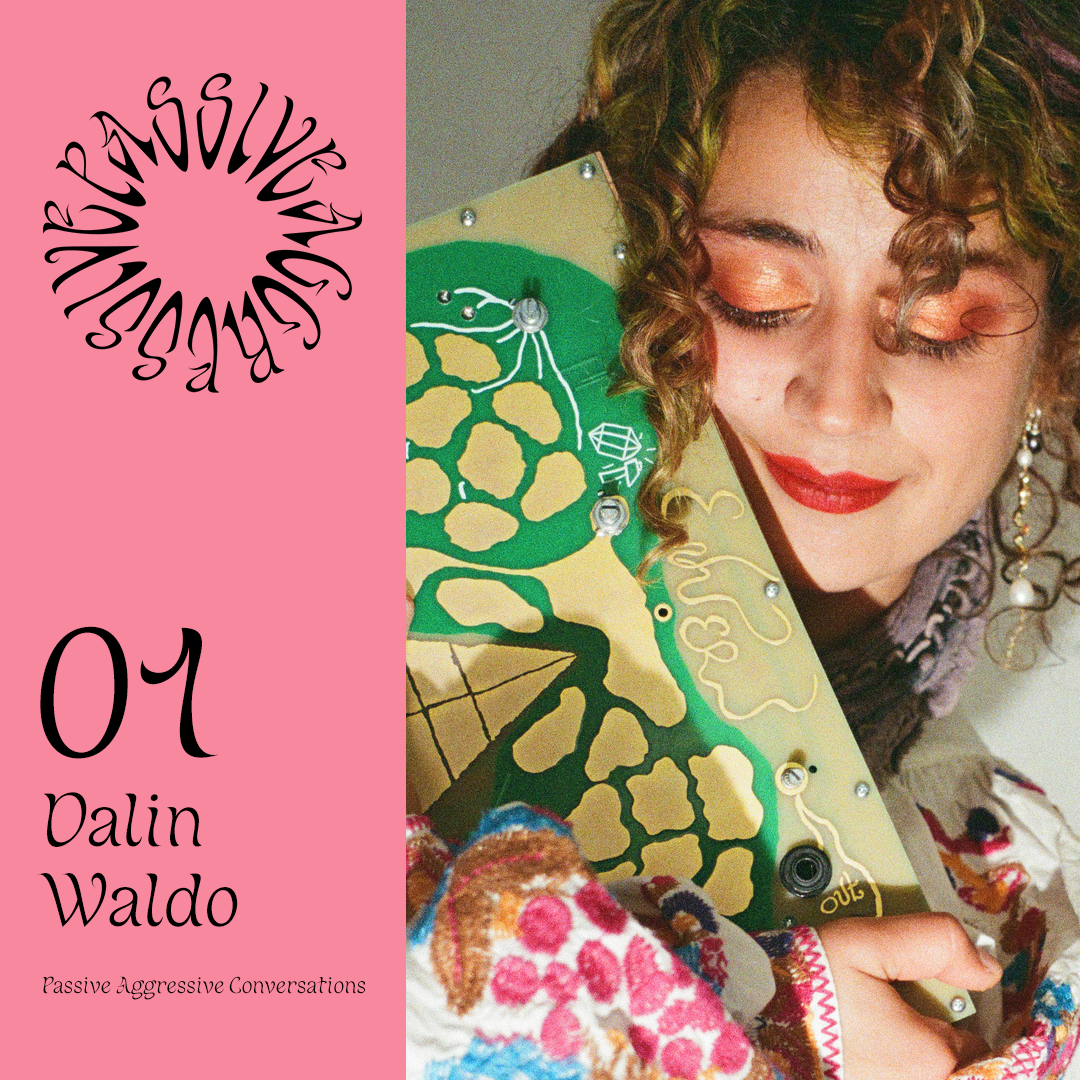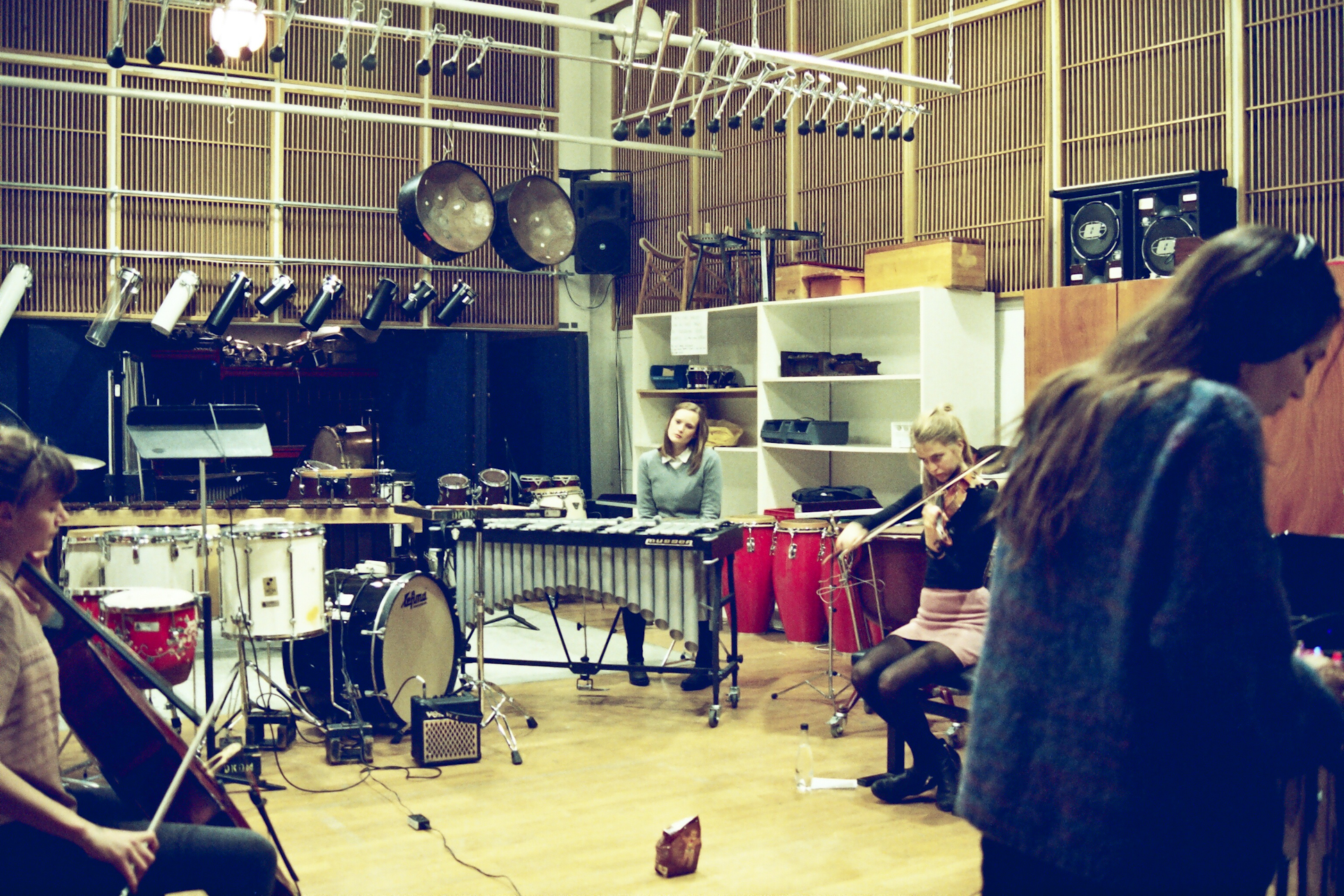MINU: Festival for Expanded Music 2023
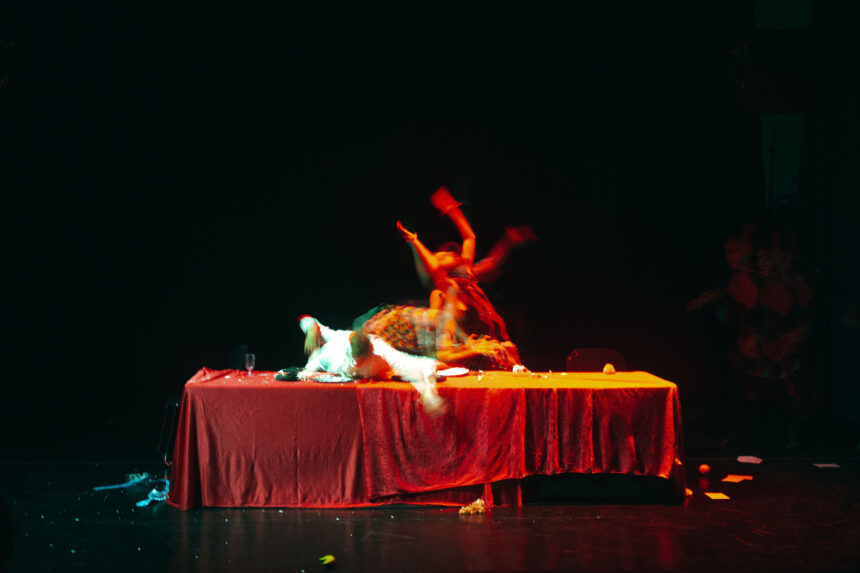
Minu Festival, November 15 – 19, 2023 – Review by Macon Holt
Over five days in mid-November, the third iteration of “MINU: Festival for Expanded Music” was held in Copenhagen. The programme features a huge range of performances including more conventional contemporary classical concerts, music theatre, installation works, experiments with cake, workshops and conference presentations. The small and ambitious festival is officially directed and produced by the performer and founder of the ensemble K!art, Mikkel Schou, and composer/performer, Dylan Richards, but they are really channelling the drives and inspirations of a community of young, composers and performers. This community is trying to push music, not necessarily forward, but towards something that expands not only the form but also our ideas about the world we live in. Indeed, Richards and Schou say as much in the introduction to the programme and they push further with this provocation: “MINU champions experimentation and artistic freedom, with an attitude less oriented towards the pristine spectacle and more towards risky endeavours”.
Interestingly, for all their attempts to cut-the-bull from the art-speak-laden intro text genre (or perhaps because of these attempts) there is an unmistakable casting of shade here. Safely in the subtext, the programme tells you that MINU is not like other festivals. It’s not concerned with entertaining you, decorating your calendar with cultural capital or valorising the already discursively legible slices of the avant-garde. And at the very least one would have to say they succeed in at least calling attention to these problems through the programme of works they have put together. This is not to say the MINU is somehow above or beyond all the codes that the art and music world has embedded themselves in. But to say it is entangled with them consciously and critically. Taking what they need from it, tolerating that which is unhelpful but cannot be shrugged off and negotiating with what falls between. In producing such a space, MINU provides a space in which one indeed could think with “music’s ability to engage with the complexities of contemporary life”.
Fittingly for a festival dedicated to staging work that wants to intervene in the world as it is, I covered MINU on the basis of what I could get to fit around my day job as a teacher at Copenhagen Business School: a place so aesthetically distant from even the most conservative work staged at MINU attending the festival almost induced vertigo. What follows then is an account of the highlights of what I saw, heard and felt as someone seeking the expansion MINU claims to offer
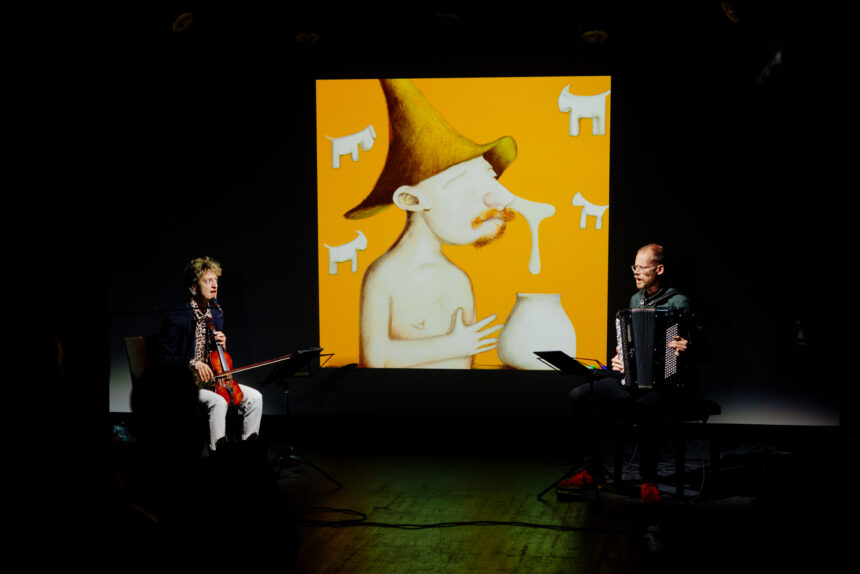
This concert saw the world premiere of “dew” by Berlin-based performer/composer, Jessie Marino, commissioned by and played alongside Danish accordionist, Andreas Borregaard. “The Lamb of Tartary” is but a single episode of Marino’s larger work, “A Host of Possible Dramas and Exchanges”, further sections of which were performed during the festival. This chapter was a performance for Mario on violin and vocals and Borroegaard on accordion and vocals, synchronised with a film, most of which was comprised of stills of scholarly drawings from the Jesuit scholar Athanasius Kircher, who the programme tells us, “bravely and formidably, got things wrong through most of the 17th century”. The titular lamb is a case in point, as Kircher posited this animal grew as part of a plant.
Why do you expect us to believe you? And why would you want us to?
The polyvocal spoken performance of edited snippets of Kircher text, set against the structured improvisations and momentarily stable ostinatos evokes something that frantic pattern finding that makes your brain rattle. They are a sonic metaphor for the thrilling shock of revelation as your pet-theories let the world appear to make sense. There is an invitation here to recognise the Kircher in all of us in our absurd attempts to explain what is happening out there with the limited tools we have that just aren’t up to the task. However, the institutional position of Kircher, the contradictions in the text, the voices, the affects, and the ambiguous position of the music in relation to all of this reveal another subtle point in Marino’s piece. Marino seems to pose a pair of open questions for Kircher that applies also to anyone with supposed authority over how we understand the world: Why do you expect us to believe you? And why would you want us to?
“Nativity” is Copenhagen-based composer Rob Durnin’s graduation composition for the Royal Danish Music Conservatory, restaged in a former industrial building now drafty theatre space on Refshaløen. Rumours peppered the festival about the controversy the piece had caused at the Conservatory. But part of the reason for this rumour bubbling was the excitement attendants and organisers felt at how MINU was genuinely engaging with and showing work that pushed the envelope of contemporary art music. With this buzz of controversy, one might imagine “Nativity” to be shocking in some way. A set transgression of taboos with maybe religious and/or sexual connotations. But there is an established discourse for that. “Nativity” is rather much more subtle in its vexations.
Featuring performances from Nikolaus von Bemberg (as some kind of cypher for the composer himself, perhaps?) and composer/performers Neli Pantsulaia and Connor McLean (dressed in the attire of Mary and Joseph respectively as seen in innumerate nativity scenes in UK school Christmas plays, dressing gowns etc.), “Nativity” takes place in two acts. The first focuses on von Bemberg’s intimacy with the interface, which sees him kissing and caressing a controller and unzipping the clothes on the keyboard while the sonic material, through fits and starts gradually becomes more prominent to the point of domination. In this part, Durin gives bedroom composition erotics reminiscent of the frustrating post-industrial mutedness of Chronenberg’s Crash. Which is to say an erotics that tarries with the difficulty of authentic enjoyment in a world that seeks to foreclose its possibility. Thus to retreat into the machines that this world provides to explore their yet-undiscovered kinks is at once a survival strategy and an indictment of the world as it is. All of which is deeply dissatisfying if you’re conception of the function of the avant-garde is to offer ways out.
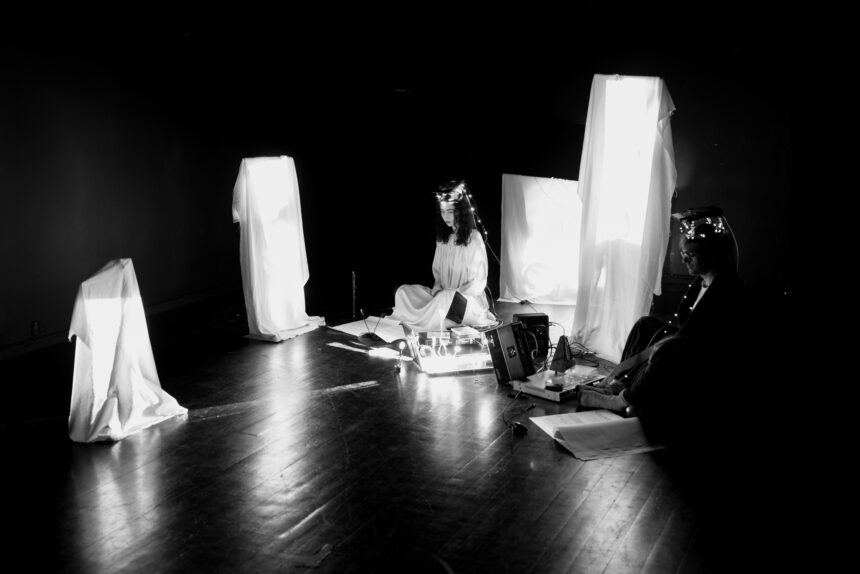
The second part sees Pantsulaia and McLean seated in costume amongst a contraption of projectors, reflectors and surfaces that looked like a distant cousin of artist Sarah Sze’s installations. This Mary and Joseph (perhaps, with their school play costumes, an Oedipal satire of the composer as a messiah figure?) also wore CD player headdresses on a dark stage illuminated by fairy lights. If the first part was Dunin in the world, now we are seeing the world inside Dunin. Pantsulaia and McLean enact a ritual, reading texts that move seamlessly from the surreal to the messianic to the mundane, rich with references that it would take a dedicated literary scholar to unpick as the sound crackles, making delicate interventions and amidst the whir of projector fans that facilitate the drama of the synchronous imagery and lighting cues. To say we are in Dunin’s head is not to say we are given privileged access to understand his personal psychology, but rather, against the foreclosure enjoyment in the outside, we get to see what fragments pass through that make pleasure feel possible despite all the problems it poses. And here we have what some traditions might find troubling about Dunin’s work. There is no catharsis for us in it. It ends with the real feeling that the tension sustained throughout is far from being resolved.
In H15, the MINU program moved out of the concert hall setting to something with a more permeable membrane between the artist and the audience. It was kicked off by a playfully intense set from the noise composer Bysund, which drew parallels between noise, drone sonics and visuals of forced tickling, and a snake regurgitating pilfered eggs to fit through the cracks. It was a fabulously structured set that earned its stumbling discovery of tonality in its final moments through its carefully crafted oscillation between the tension and release of the ecstasy and absurdity of noise. Bysund replied to my Instagram post about the concert the next day, “noise music is a cartoon”. Indeed, his brand of noise lets us imagine the placid smile of one who has reached enlightenment coming across the face of Wile E Coyote’s as he looks down and realises he’s been suspended in mid-air for some time.
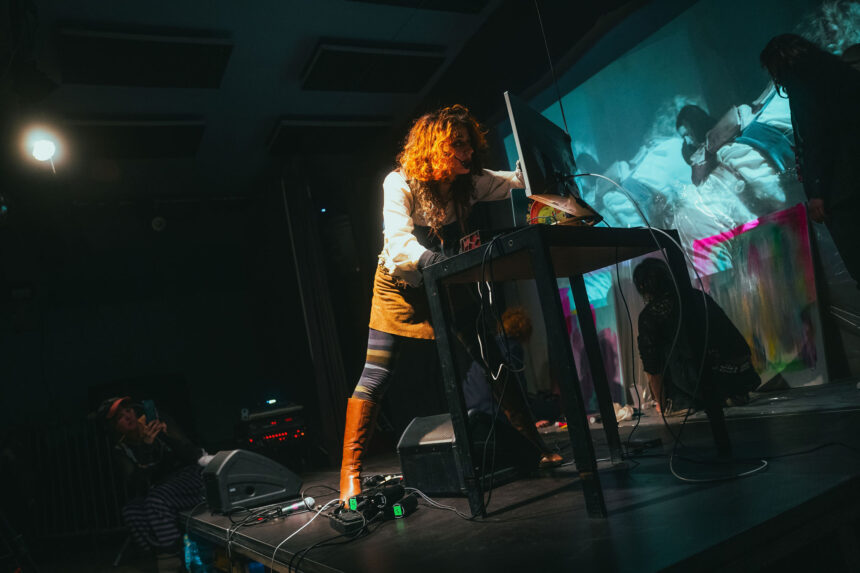
The titular performance of the night was Dalin Waldo’s “NÆGTULARISM UR NEO-FLUXUS MoveMÆNT”, which saw Waldo stage xemself, in a literal interview format, as a queer and racialized artist asked to account for all the suffering, and political turmoil and abuse currently being visited upon those, particularly in Palestine, with whom xey share some kind of lineage. Waldo commandeered the platform (of xyr own manufacture) to articulate that while such context is important and it is vital to intervene in it, doing so can feel at odds with xem being able to exercise where xyr artistic desires. Xey sees the freedom of other artists to be able to make work that shares something of the absurdity and joy of life without an automatic assumption of a political statement as a duty. Waldo envies this but knows that it is not enough. As xe said, referring to this contemporary media moment of neo-capitalism, “wherever I look, everywhere, I see people looking like me dying”, which makes the absurdity of life take on a political valence as xyr ability to comment on this as an artist at all is only possible due to xyr parents’ decision to escape oppression elsewhere.
In particular, a further absurdity is that part of xyr father’s decision to leave Iran was driven by his desire to listen to Pink Floyd, dad rock par excellence. It is here that the limits of the interview format become too much. It is too sober a setting to talk about these things. It is as Waldo fears that only describing the preciousness of the freedoms taken for granted in this part of the world may lead this audience to smug self-satisfaction. These freedoms need to be embodied.
Waldo ostensibly pauses the interview to start the live pseudo composition of an electronic track that can simultaneously connect xem to xyr ancestral routes, connect to the audience and community xey are a part of and, at the same time, express xyr artistic desires. Artists enter the stage and begin painting canvases at the back, the befuddled interviewer is unsure how long to wait to complete their oppressed artist media package, and Waldo struggles with an Ableton interface (muttering to xemself in frustration “Abletuuunnn, what are you doing?!” “You can do this Dalin, you went to school for this”) to make the music that will make it all make sense. The brilliance of this multi-layered performance/composition comes through as the antenna on top of the screen keeps catching “Wish You Were Here” and the ancestral spirits clash with an interface designed as part of the perpetuation of white supremacist, colonialist, capitalist heteropatriarchy.
The multiplicity of Waldo’s critique is carried in the oblique inferences that make the callbacks and the jokes land while we are caught by xyr beats. This is xyr honest attempt to engage with the political horror xey can’t look away from and offer something more. And it works. In a breakdown of the music and the perfectly timed silence that follows (with little asides like “it almost like I know what was going to happen next” which call attention to the artifice of this attempt to communicate a real and complex experience), Waldo reveals the interface of xyr own design that can help them complete the music in a way that makes more political sense. The paintings are finished and suddenly the stakes are revealed. Resources must be redistributed and a charity auction of these paintings is held to help those currently suffering the yoke of oppression. Waldo as auctioneer draws the audience into a competitive bidding war, closing the performance with an affirmation of the agency we have by virtue of the position we occupy in the world that we are, simultaneously, shaped by. The bedraggled interviewer looked on dismayed while the audience was enraptured.
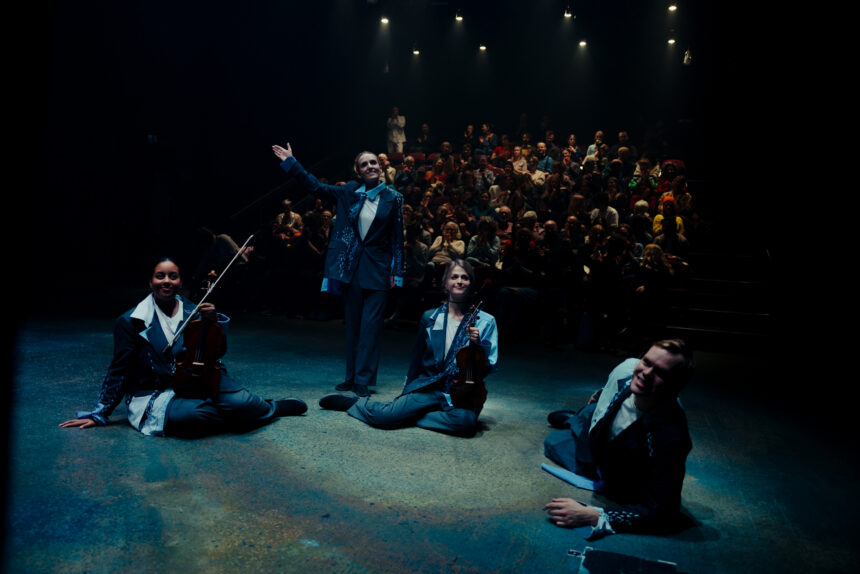
“We Just Work Here, We Don’t Make the Rules” is a song cycle for the stage composed by Kirstine Fogh Vindelev. The lyrics were derived from research and interviews conducted with employees of the Danish asylum system. Performed by soprano, Nina Smidth-Brewer, and tenor, Mathias Mondrad Møller, with accompaniment from Katrine Grarup Elbo and Arsema Asghodom, these songs satirise the hypocrisy present in the inhuman treatment asylum seekers face in the famously callous Danish system by focusing on the desire of its officiants to retain their own humanity.
The moments when it tries to humanise the inner conflict of the asylum centre staff by becoming musically minor and mournful miss the mark because of course these employees are conflicted.
Thus the refrain “Please remember, we just work here, we don’t make the rules” – the only line sung in English in an otherwise Danish language set of songs, becomes the catchphrase of the internationalised banality of the evil that maintains the necropolitical regime – the power system that tells us which deaths are to be mourned and avenged, and which are to be regrettably tolerated – that everyone in the audience currently enjoys the protections of. This line in English lets you imagine how those uttering this phrase would experience doing so as some kind of accommodation in the face of a migrant’s impossible-to-address complaint about inhumane conditions, rather than the obvious disavowal of responsibility that it is. It is in the attention these songs call to the impulse of ‘benevolent’ disavowal that “We Just Work Here, We Don’t Make the Rules” is at its most powerful. When it calls attention to the monstrosity we placidly tolerate. The emotional and political payoff is not in moments when it tries to humanise the inner conflict of the asylum centre staff by becoming musically minor and mournful. These miss the mark because of course these employees are conflicted. They are human. But so are those they detain and discipline, and the employees are still doing the detaining and disciplining. But it’s when Vindelev’s composition indulges in the pleasure of authoritarian violence, making upbeat ditties about flattening the lungs of those who attempt to resist the violence of the state, that it is the most effective. These moments produce a startling effect as the excitement and disgust they stir in the audience and call attention to the compromised morals of everyone in the room. We who materially benefit from the enforcement of fortress Europe even as we denounce it. This leaves the audience with the uncomfortable question: if we were called upon to inflict this violence to maintain our privileges, would we refuse and suffer the consequences or acquiesce and reap the rewards?
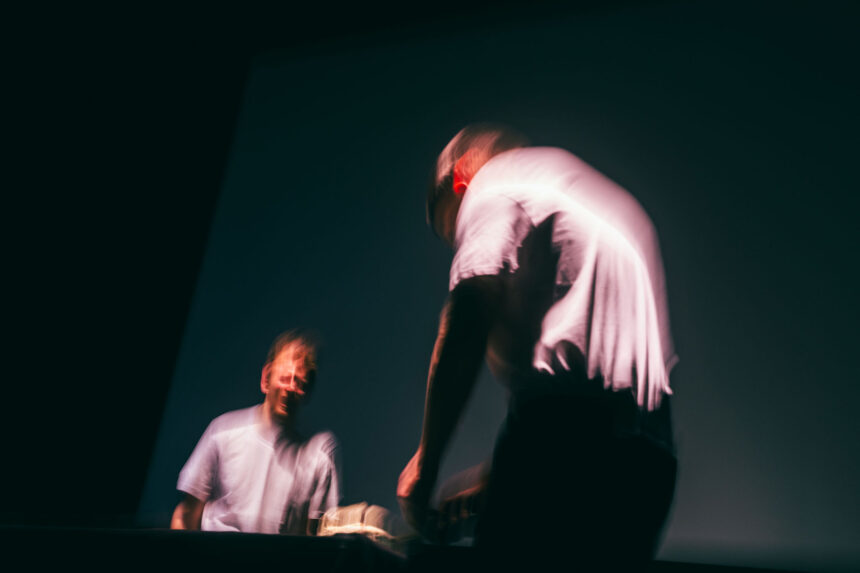
The festival closes with a suite of pieces performed under the title Á la carte, curated by the Denmark-based contemporary composition collective Current Resonance (composers Michael Hope, Dylan Richards, Joss Smith and Matthew Grouse). Straddling avant-garde performance art, composition, absurd humour, internet culture, and a close study of polite symbolic mores and the repressed desires they conceal, Current Resonance has cultivated a reputation for giving a platform to works that pushed past the limits of music some time ago and now seem to be working on pushing past the limits of the performers’ personal safety.
The laughter derived from the surprise and confusion opens up in the audience the chance to be touched because their defences have been overwhelmed.
Featuring compositions from Neo Hülcker & Henry Wilde aka Antonia Baehr (Musick für tote Tiere) Fraz Ireland (The Lost Supper), Caitlin Rowley (Cake Piece), Alexandra Hallén (ät tårta) and Current Resonance’s own Michael Hope (Á la carte), these performances were not only filled with absurd humour but to a large extent an awareness that the humour can serve both connection and alienation. The laughter derived from the surprise and confusion opens up in the audience the chance to be touched because their defences have been overwhelmed. For example, in Rowley’s “Cake Piece” – which saw Smith methodically cut a cake into slices as Grouse reacted with what were, at first, whimpers before escalating to agonised wails and skriks of pain – used the humour of the conceit to expose us to more than we bargained for creating an unease one just had to sit with.
Similarly, the closing performance of Hope’s “Á la carte” saw the ensemble perform in gender-confounding costumes that refused to settle into a binary as they sat down for dinner, caught in the multilayered subjective realities of the moment. Between incidental sounds of culinary consumption, snippets of big band jazz, sound design, dialogue and noise, Hope had staged and composed the ruptures we live with even when we just share a meal with a friend/lover/enemy/parent/partner/associate and the struggle we feel to keep it all together – all the while questioning if we should.
By the end, the stage and the performers were covered in cake and there was a remarkable feeling of levity in the room which is rare in contemporary music festivals. Rarer still was the feeling that this levity was also an opening, an invitation from Current Resonance and MINU (given Richards’ overlap) to those who had attended it to think about what lies beyond the festival otherwise. For its desire to make an intervention that sets itself apart from other contemporary composition festivals, MINU’s curatorial plan of attack seemed less to be one of provocation that directly looks at the heaviness of the world right now and more one of elevating the lightness which is still possible. A lightness that does not look away from the horrors that abound at the moment or historically but a lightness that resolutely refuses to succumb to the romantic tragedy that would have us be paralysed. MINU 2023 was about desiring differently in and against, with and by way of the world as it is.
Editor’s note: Mikkel Schou writes for Passive/Aggressive.

